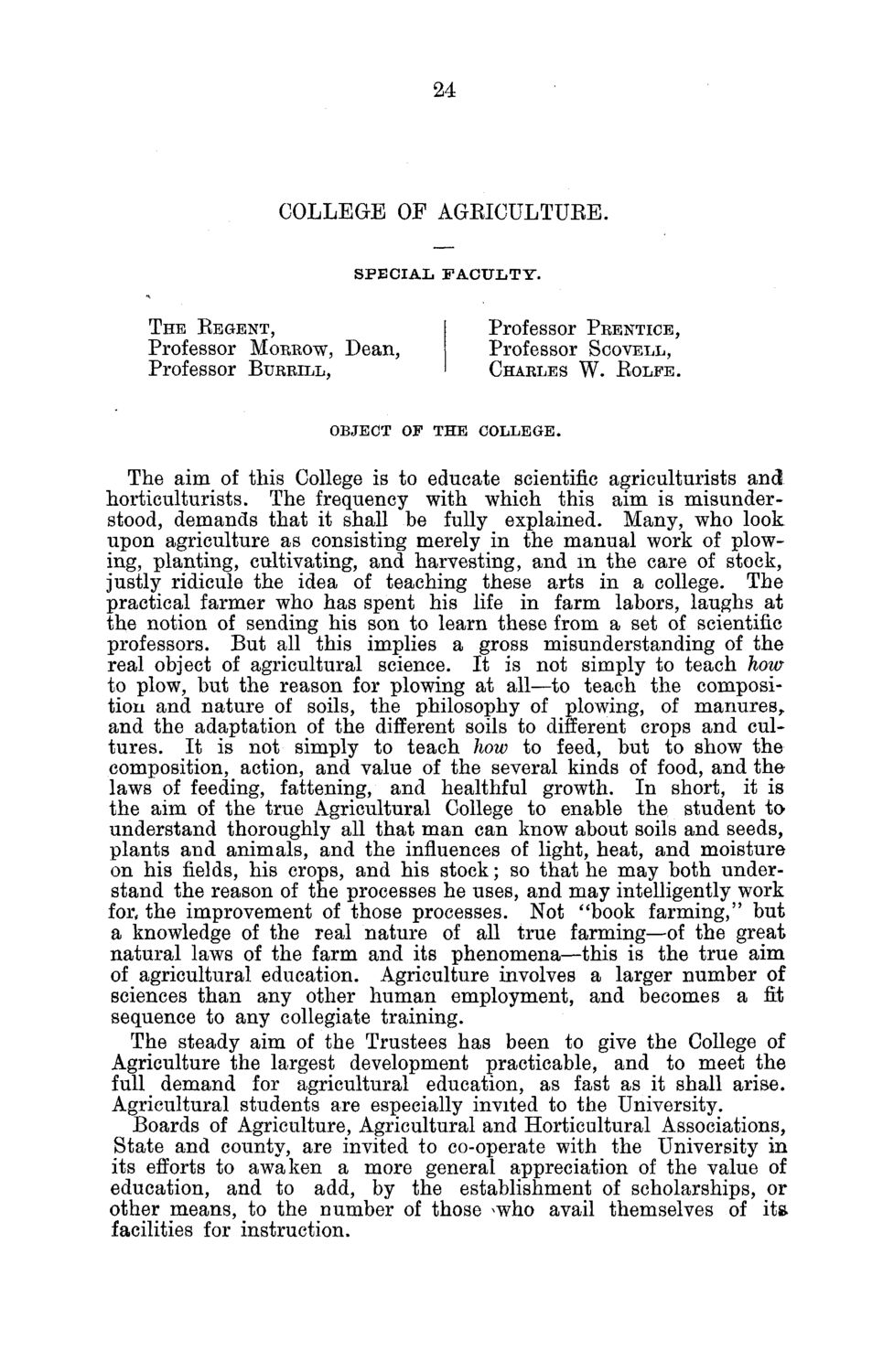| |
| |
Caption: Board of Trustees Minutes - 1882
This is a reduced-resolution page image for fast online browsing.

EXTRACTED TEXT FROM PAGE:
24 COLLEGE OP AGEICULTUEE. SPECIAL F A C U L T Y . THE EEGENT, I Professor PRENTICE, Professor MORROW, Professor BURRILL, Dean, I Professor SCOVELL, CHARLES W. EOLFE. OBJECT OF T H E COLLEGE. The aim of this College is to educate scientific agriculturists and horticulturists. The frequency with which this aim is misunderstood, demands that it shall be fully explained. Many, who look upon agriculture as consisting merely in the manual work of plowing, planting, cultivating, and harvesting, and m the care of stock, justly ridicule the idea of teaching these arts in a college. The practical farmer who has spent his life in farm labors, laughs at the notion of sending his son to learn these from a set of scientific professors. But all this implies a gross misunderstanding of the real object of agricultural science. It is not simply to teach hom to plow, but the reason for plowing at all—to teach the composition and nature of soils, the philosophy of plowing, of manures, and the adaptation of the different soils to different crops and cultures. It is not simply to teach how to feed, but to show the composition, action, and value of the several kinds of food, and the laws of feeding, fattening, and healthful growth. In short, it is the aim of the true Agricultural College to enable the student to understand thoroughly all that man can know about soils and seeds, plants and animals, and the influences of light, heat, and moisture on his fields, his crops, and his stock; so that he may both understand the reason of the processes he uses, and may intelligently work for, the improvement of those processes. Not "book farming," but a knowledge of the real nature of all true farming—of the great natural laws of the farm and its phenomena—this is the true aim of agricultural education. Agriculture involves a larger number of sciences than any other human employment, and becomes a fit sequence to any collegiate training. The steady aim of the Trustees has been to give the College of Agriculture the largest development practicable, and to meet the full demand for agricultural education, as fast as it shall arise. Agricultural students are especially invited to the University. Boards of Agriculture, Agricultural and Horticultural Associations, State and county, are invited to co-operate with the University in its efforts to awaken a more general appreciation of the value of education, and to add, by the establishment of scholarships, or other means, to the number of those ^who avail themselves of its. facilities for instruction.
| |